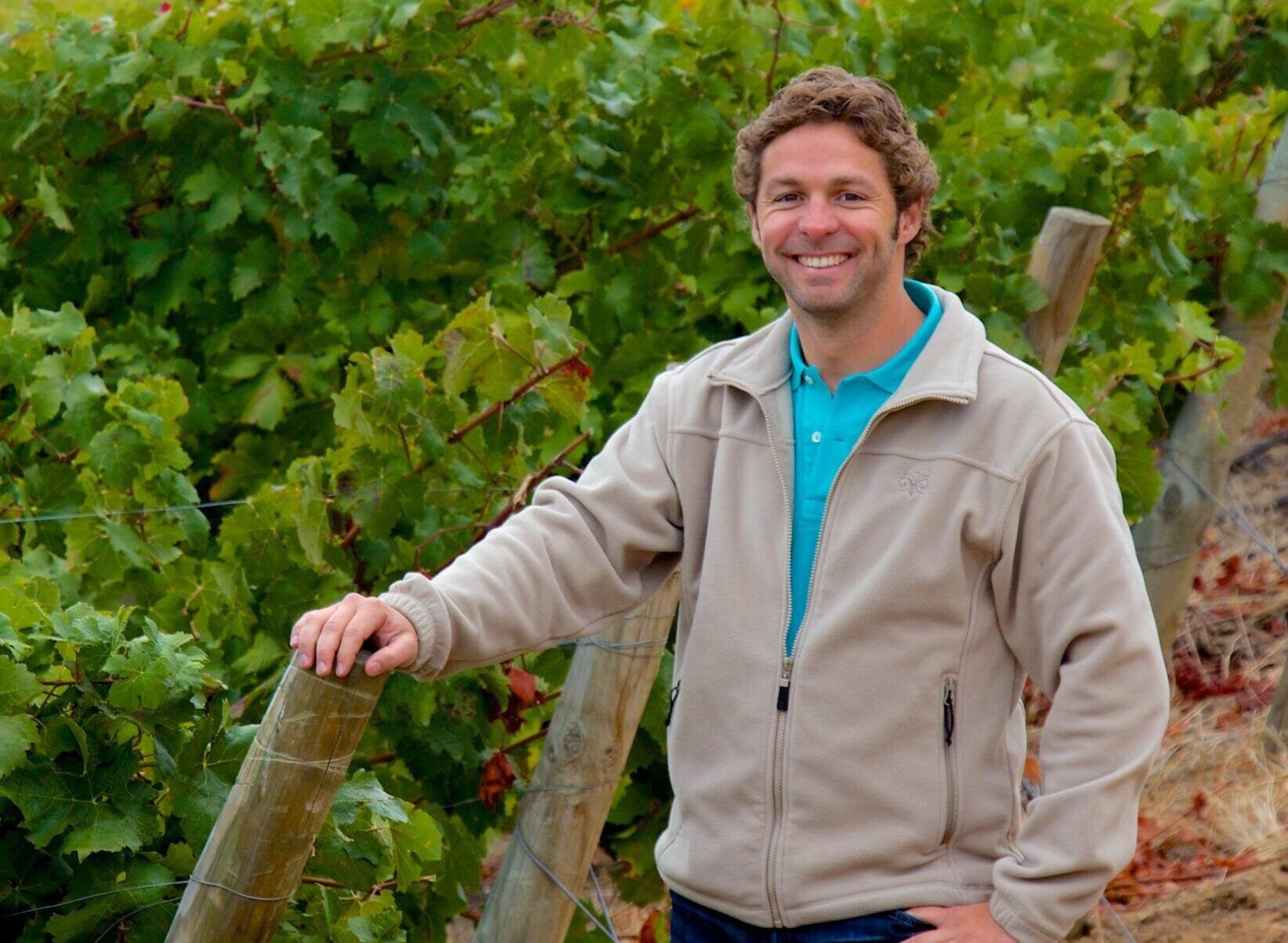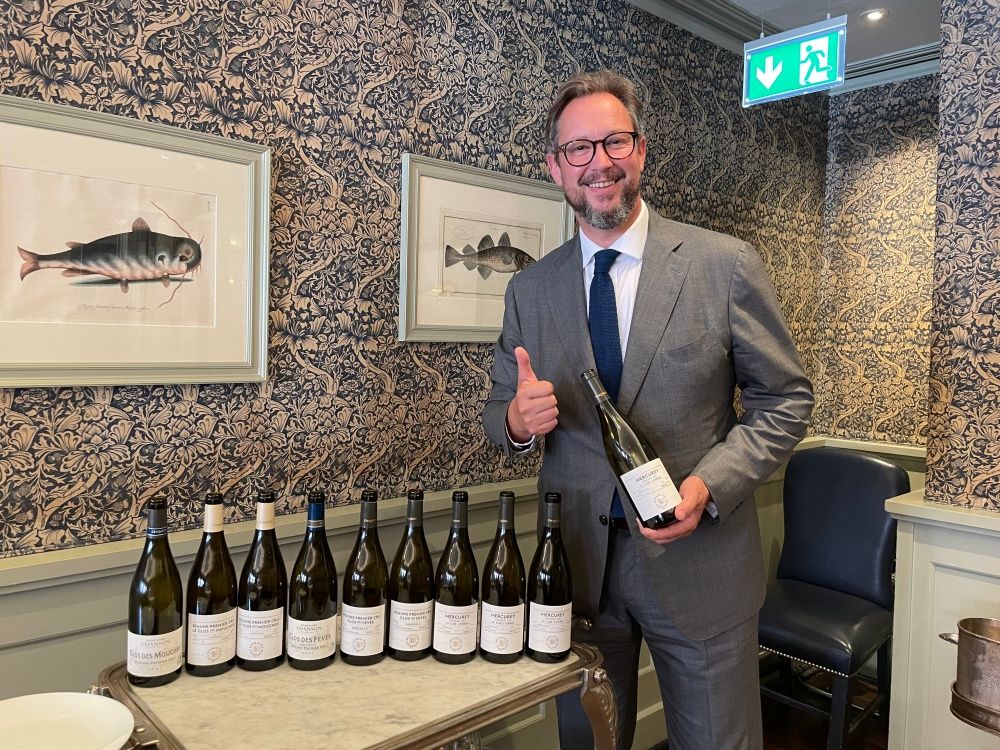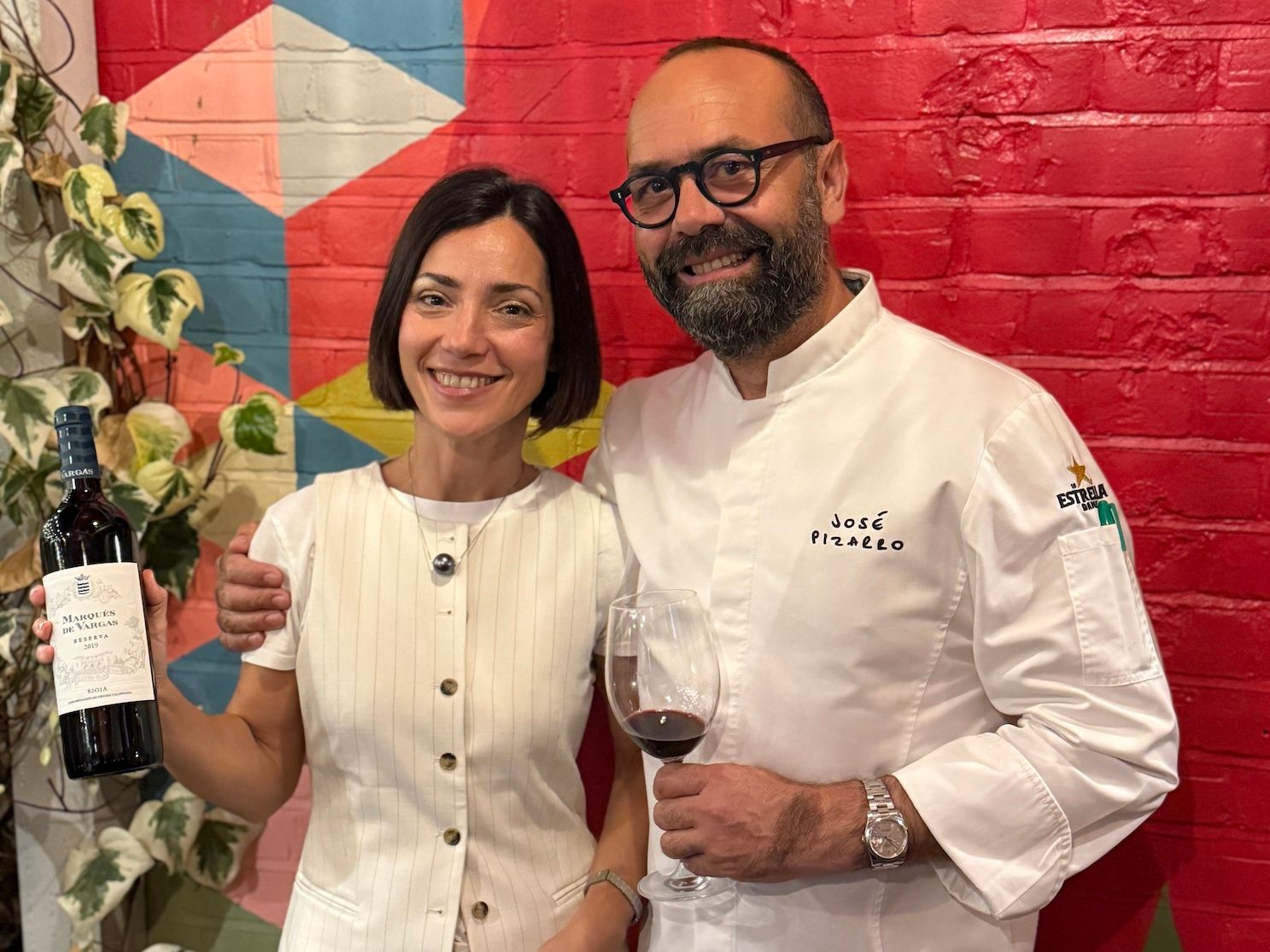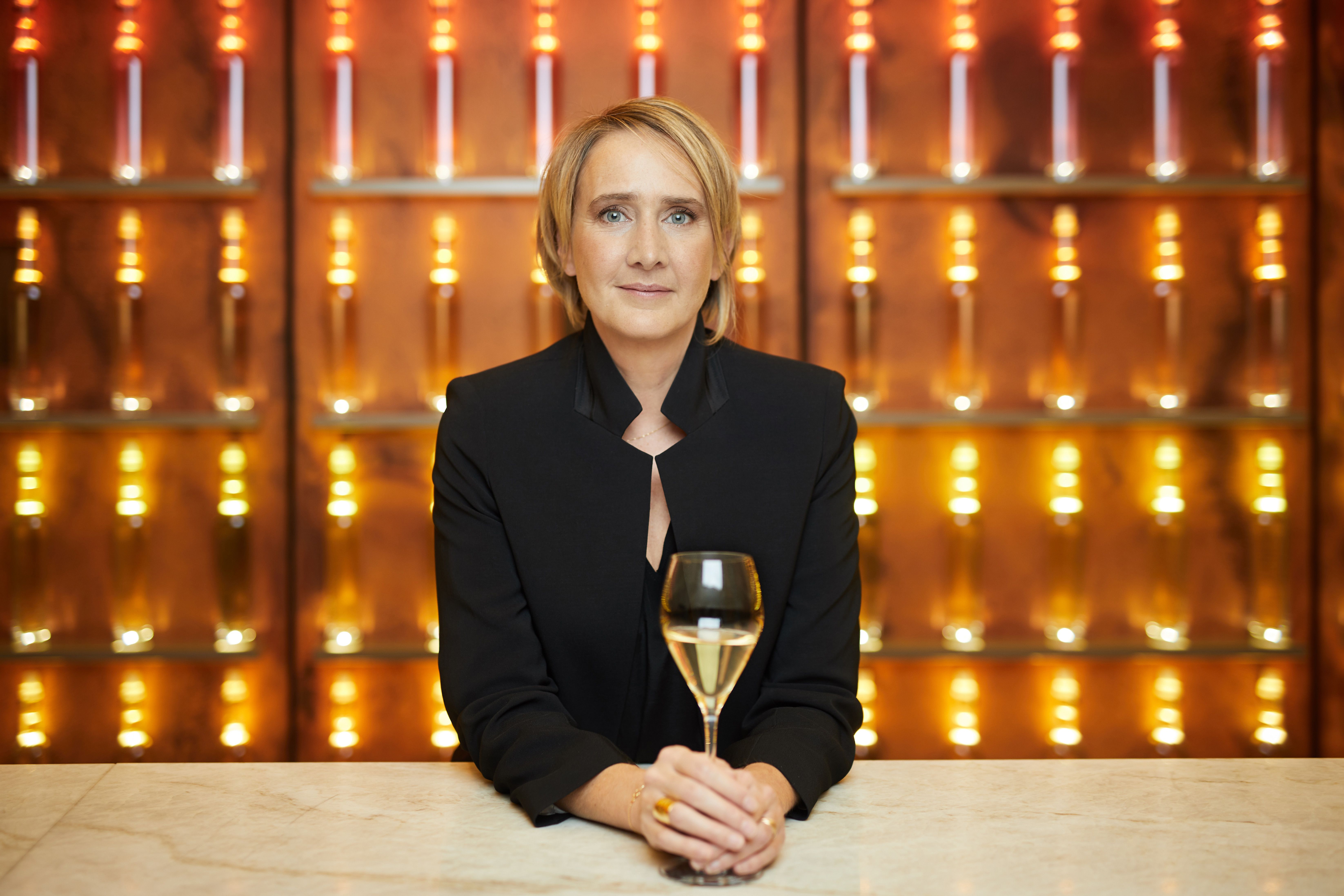“We have been working on a new line of limited edition wines called “Tiny Trials” that come from two amazing places, separated by more than 300 kilometers in a straight line, but sharing the same ancient granite soil.” says Celedón.
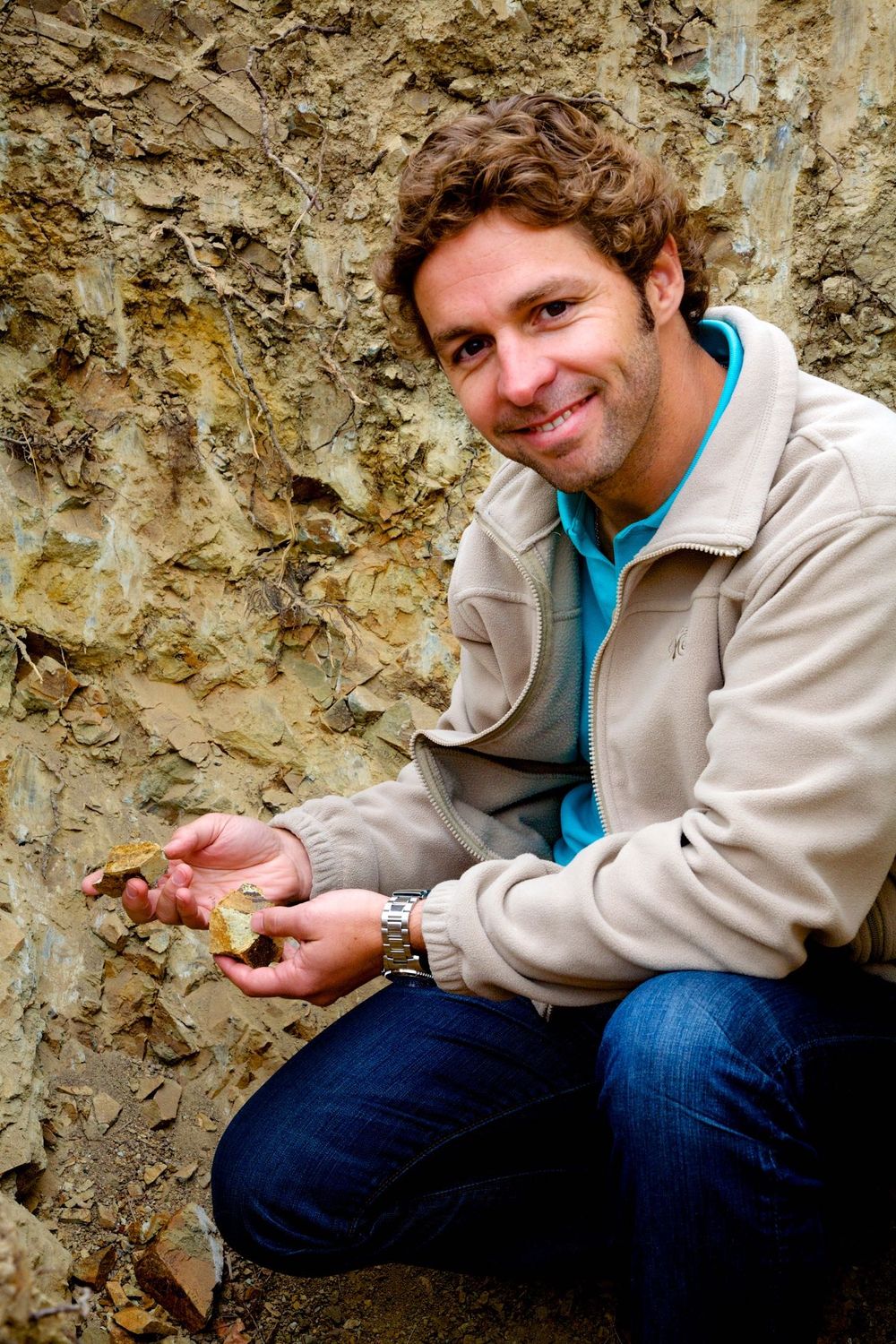
Patricio Celedon, Chief Winemaker, Viu Manent, in Calicata in Block 31 in their El Olivar vineyard, Chile
Founded in 1935, Viu Manent started life as a negociant business then, in 1966 Catalan immigrant Miguel Viu Garcia bought the Hacienda San Carlos de Cunaco which included 150 hectares of pre-phylloxera vines. Today the vineyards cover 260 hectares across three locations in the Colchagua Valley. Patricio Celedón has been with the estate for the past 11 years, three and half of which as chief winemaker.
PETER DEAN: How has life in Chile been for the past 18 months?
PATRICIO CELEDÓN: Personally speaking, I find that my life has not changed much with the Covid pandemic. Agricultural businesses were considered “essential companies”, so winemakers were allowed to move freely to be able to go to work in the winery and visit the vineyards.
The adaptation of the team has been very important, and since the beginning of the pandemic, we have been very careful with the use of personal protection elements, which has allowed us not to have any outbreaks caused in the winery. Although there have been absences due to the pandemic, our production has not been affected at any time.
On the other hand, we have had to become more technological, avoiding physical contact and conducting practically all meetings and tastings via Zoom.
How has the pandemic affected Viu Manent?
We had a decrease in sales during the third quarter of 2020 mainly due to our focus in the on-trade at the different markets. During this year we have seen that, thanks to online sales and some markets that were less affected, our level of sales are the same as before the pandemic.
One of the biggest problems we are having today is related to logistics, such as the shortage of dry goods (especially bottles, wooden boxes and cardboard boxes), containers and vessels to ship our wines..
Has life returned to normal yet?
During the last month the situation has been getting back to normal, restrictions have decreased, restaurants, gyms have re-opened, and people have started to go out again, recovering the level of mobility that we had before the pandemic, with traffic jams, lots of people doing sports, etc.
This has had a direct impact on national market sales, which have increased a lot, keeping us quite busy fighting to avoid problems with dry goods and logistics as well in our own market.
What has been the hardest thing about adapting to the ‘new normal’?
One of the most difficult things to adapt to has been avoiding physical contact with other winemakers, producers, journalists, clients and distributors, which we were very close to.
Has anything good come out of it? If so what?
I believe that quite a few projects that were in the pipeline for a long time, were pushed forwards and finally saw the light – the most important one being direct online sales, which we were forced to promote, due to the impossibility of selling in restaurants and some shops.
At the same time, the use of different technology platforms that allowed us to get closer to our foreign clients, without the need to travel to the market. In some cases we are closer than ever with our international customers!
Has it led to anything new in the pipeline? Cuvées, varietals, styles etc?
Yeees!!!!!!, We have been working on a new line of wines that we will launch at the end of the year, consisting of two limited edition wines called “Tiny Trials” that come from two amazing places, separated by more than 300 kilometers in a straight line, but sharing the same ancient granite soil. It is a Chardonnay and a Cinsault, both vibrant wines, with a lot of energy and character.
In terms of the effect on your winemaking – how impactful has Covid been compared to Climate Change?
Covid mainly affects the availability of the workforce, especially in the vineyards, but its effect is minimal compared with Climate Change, which is much more serious and has a direct impact on production. In the last ten years, it has been more and more frequent to observe heatwaves during summer, out-of-season rains, floods, drought, etc., which end up directly affecting the quantity and quality of production. Climate change will have a much longer and more worrying impact than the pandemic. We must act now.
What stage of the current growing cycle are you?
Right now we are in the middle of pruning. As in the winery, the viticulture area is facing a great challenge, mainly due to the lack of labour in Chile that has generated all the government aid bonds. Although this help is, of course, necessary to many people, it has generated a problem since a large part of the people receiving it don’t want to keep working in the agricultural sector.
The pruning is being carried out, but at a slower rate, also forcing us to accelerate the use of agricultural technology and automation.
Is 2021 going to be a good vintage? Any particular characteristics to note?
The 2021 vintage has been one of the coldest vintages of the recent times. In qualitative terms, I think it is a great vintage, with higher potential in most of the wines.
In general, it was harvested with significantly higher acidity levels than in a normal year, as well as a lower level of sugar, resulting in wines with lower alcohols. Due to the fact that we did not have high temperature peaks during the summer, the level of colour shown by the wines is extraordinary, as is their balance, which makes us foresee that, above all, high-end wines will have greater and longer storage potential. The varieties that stand out the most in the Colchagua Valley are the reds, especially Cabernet Sauvignon, Carménère, Malbec and Cabernet Franc.
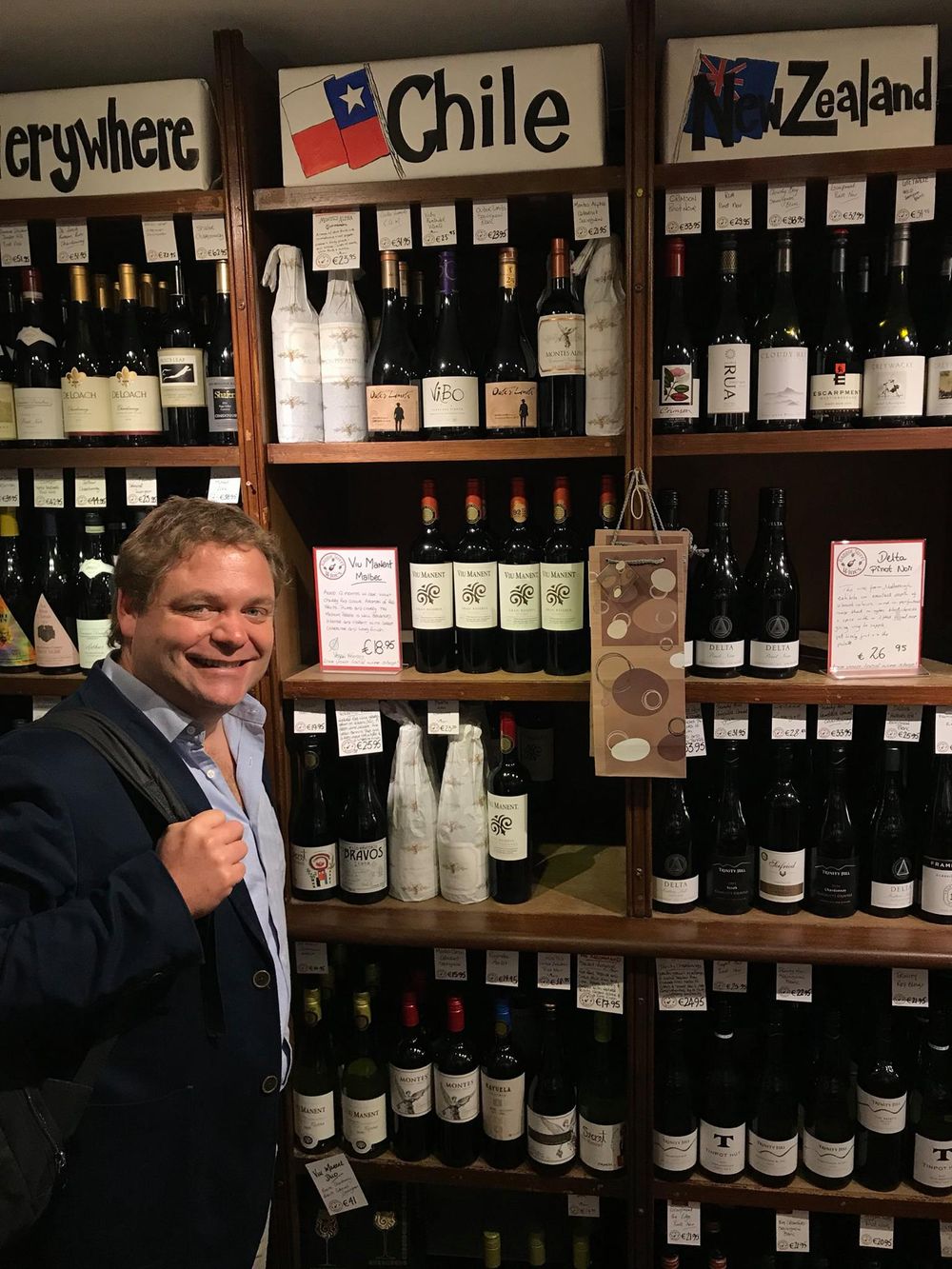
Export Manager Cristian Urzua
PETER DEAN: How have you changed your business model over the past 18 months? (distribution channels, importers and distributors you work with?)
CRISTIAN URZUA (Viu Manent export manager): In terms of export we have suggested to our clients to look at online sales, whether it’s direct or with an online partner, since this type of sales have grown enormously.
In terms of domestic, yes! we made an important move by starting our own online site where people can order directly. This, of course, must be done very carefully and working close to your distributor to avoid conflict in prices and promotions.
What were the lessons learned of going direct to consumer?
We went DTC domestically – it has been difficult, but very enriching. The closer you are to the final consumer, the better, but at the same time this is not just as a way to increase your sales, but also to enhance your brand… something that’s not always easy to do.
Are you going to continue with a different trading model moving forwards?
Not different, but improved.
Have you changed which countries you are distributing to?
Of course some of them are selling less, but this is also the moment to be creative and supportive
Has exporting to the UK changed at all – is it logistically more difficult and if so – are other countries more attractive/ profitable?
We have been affected because an important part of our business was in the on-trade, but we trust this will be overcome and we will be even stronger.
In terms of logistics tough, yes…, it’s crazy all over the world!!!
Finally, yes there are other markets more profitable for us (China, Brazil, USA) but overall The UK is the third most important market for Chilean wines in terms of volume and probably the most important when it comes to image, due to trends and wine writers. But generally speaking the UK consumer has a reduced image of Chile as a wine-producing country (good value for money etc.)… maybe this is “the cost of success” in the lower price segments? where Viu Manent, incidentally, does not compete. This is a very important point when it comes to Wines of Chile’s objective – to improve Chile’s positioning in the mindset of consumers – but it also a very slow process.
In Viu Manent we acknowledge and accept this as part of the market’s characteristics, so our focus and communication must be centred around fine wines and by seeing ourselves as “Colchagua’s finest reflection”.
The wines of Viu Mament are distributed in the UK by Louis Latour Agencies which is a partner supplier of The Buyer. To find out more about them click here.
